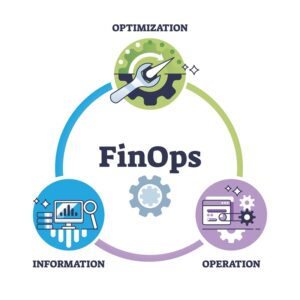
Overcoming the Financial Breaking Point: How Businesses Can Overcome Data Cost Anxiety

(PopTika/Shutterstock)
A 2022 IDC survey involving over 500 senior IT decision-makers highlighted a significant concern in data management, as more than half (52%) considered their data management spending unsustainable. This alarming trend underscores the critical challenge businesses face today — efficiently managing data’s ever-growing volume and complexity.
As data is now a critical asset, the rising costs of data management are posing a significant financial burden on companies, making it necessary to address these escalating expenses with innovative strategies.
For instance, as businesses embrace digital transformation, they often encounter challenges with cloud computing. While the cloud offers great flexibility and a wide range of services, it can also lead to unexpected cost increases, which is unlike traditional, on-premises servers that provided predictable expenses. With the growth of data volumes, the costs associated with cloud storage, processing, and management is quickly becoming out of hand and is leading to unsustainable fees.
However, these costs are not simply tied to data volume; they also arise from complex data processing and system inefficiencies. Additionally, the variety of storage options and the extra charges for moving data between cloud providers or between on-premises systems can make budget planning more complex. Therefore it has become extremely important that the business is able to balance the cloud’s advantages with the ability to manage the unexpected costs.
Alleviating Costs & Providing Greater Insights
One innovation that is gaining traction is a “logical” approach to data management, which prioritizes data accessibility and use over its physical location.
This method leverages data virtualization to abstract and integrate data from distributed sources into a unified, easily accessible, and understandable format. By decoupling a logical view of data from its physical storage, logical data management can streamline data analytics and business intelligence processes by facilitating the aggregation and analysis of data from multiple sources without extensive data replication. It can also enhance governance, security, and compliance across diverse systems.
Organizations that embrace a logical approach to data management are in a unique position to leverage a rich pool of metadata drawn from the applicable data sources. This enables enterprises to gain detailed insights into the activity of the data consumers, and the data sources themselves, for a comprehensive view of the entire data landscape. Such a perspective is crucial for making well-informed data-strategy decisions with an eye towards optimizing performance and costs.
Integral to this approach is active metadata, which offers dynamic, contextual insights into how data is used and how systems are performing. Active metadata is key for understanding data-access patterns, demands on workloads, and the overall efficiency of data processes. These insights are particularly invaluable for businesses that need to effectively predict and manage their data management costs. By combining active metadata with logical data management, businesses can better understand their data environment, leading to more informed decision-making and enhanced control over their data management practices.
How FinOps Accelerates the Benefits of Logical Data Management
When the principals of logical data management are applied to financial operations (FinOps), businesses can predict the normally volatile cloud infrastructure costs and optimize their data strategies to manage costs while maintaining performance. The blend of FinOps with logical data management marks a critical shift towards more sustainable and efficient data handling in today’s digitally driven business environment.
This is because FinOps represents a cultural and operational shift in how cloud spending is managed. It combines systems, practices, and principles to bring financial accountability to the cloud’s variable spending model. FinOps also empowers businesses to track, analyze, and optimize their cloud expenditures for maximum efficiency and effectiveness.
For example, consider a healthcare provider that is grappling with rising data management costs. By partnering with a vendor that provides detailed metadata analysis, the provider gains insights into its data usage patterns as the provider’s dashboards highlight inefficiencies in data storage and retrieval processes. Using this information, the company streamlines operations, which allows them to leverage the power of FinOps and achieve significant cost savings without compromising data accessibility or security.
Integrating FinOps with Logical Data Management
The integration of FinOps principles with the insights provided by a logical data management approach creates a powerful synergy. While FinOps brings structure to financial management, metadata insights from logical data management platforms enable targeted strategies for cost optimization and performance enhancement.
As businesses navigate the complexities of managing growing data volumes, the role of logical data management platforms becomes increasingly significant. The core value of these platforms lies in their ability to simplify data access by providing a centralized location for accessing an organization’s distributed data assets. This centralization is a major benefit, making it easier for businesses to manage and utilize their data effectively.
Once done, active metadata provides dynamic insights into data usage and system performance, enhancing the understanding of data-access patterns and workload demands. When this capability is integrated with FinOps principles, businesses can develop more sustainable, efficient, and cost-effective data management strategies. Better yet, this combination addresses the immediate concern of escalating cloud data costs and lays the foundation for a more agile and responsive data management architecture, adaptable to future needs and challenges.
About the Author: Kevin Bohan, is Director of Product Marketing at Denodo, a provider of data integration and management.
Related Items:
Mythbust Your Way to Modern Data Management
Is Your Data Management Strategy Ready for AI? 5 Ways to Tell
Data Management Predictions for 2024





























